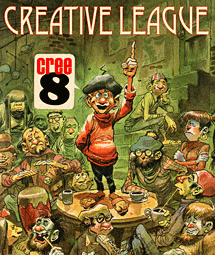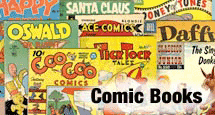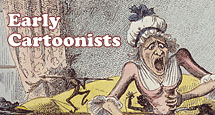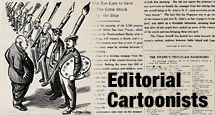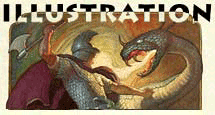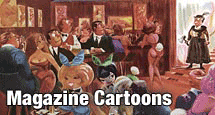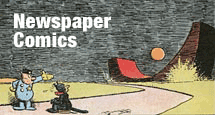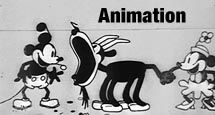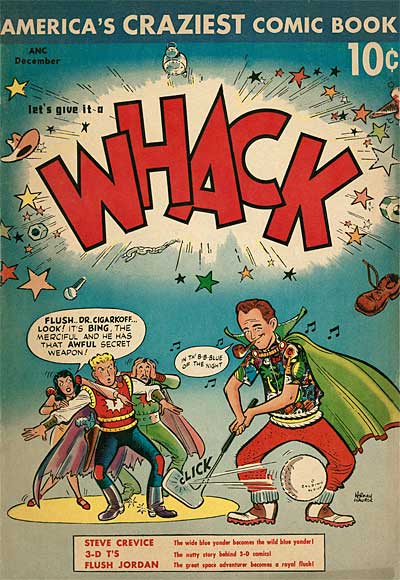
A week or two ago, I was taking part in a discussion about artists who rip off other artists’ work. One of the people discussing the subject brought up the concept of parody, but seemed to have no idea what actually constituted parody. The dictionary defines parody like this…
par-o-dy [par-uh-dee] noun, plural -dies, verb, -died, -dy-ing.
1. a humorous or satirical imitation of a serious piece of literature or writing: his hilarious parody of Hamlet’s soliloquy.
Parody should be self-evident. The Supreme Court Justice, Potter Stewart said, "I find it difficult to define obscenity, but I know it when I see it." Parody is like that too. But if you’re going to be a cartoonist, you have to be able to do more than just recognize it… you need to be able to control it and utilize it as a tool. If you succeed, you can create something that does much more than just make fun of another work- it can illuminate an otherwise unthought-of truth, making your parody a creative work that stands on its own. If you fail, you risk plagiarism.
pla-gia-rism [pley-juh-riz-uhm, -jee-uh-riz-] -noun
1. the unauthorized use or close imitation of the language and thoughts of another author and the representation of them as one’s own original work.
As a cartoonist, you have to know how to use parody properly. Parody is not an excuse for plagiarism. It’s important to add your own caricature and exaggeration to comment on the work you’re parodying. And your exaggeration has to make a point. The easiest way to recognize how to do that is to study and analyze other parodies. Here is an example of a comic that parodies other comics… Whack!
This story is a parody of the EC Comics horror line, which included Tales From The Crypt, Vault Of Horror and The Haunt Of Fear. If you aren’t familiar with this genre, you should check out the reprints at Amazon. There is nothing even remotely like them any more.
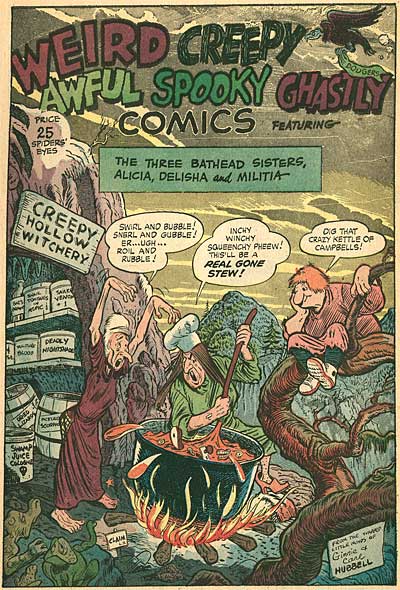
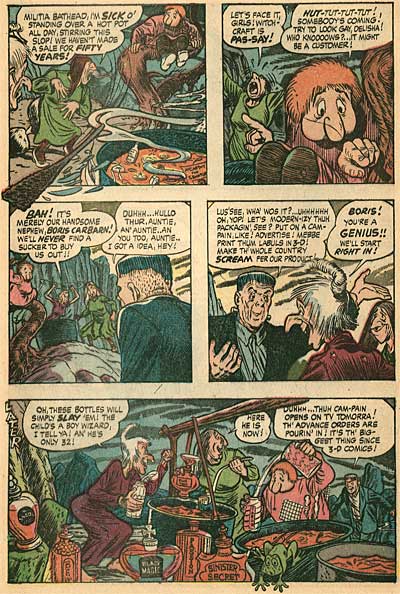
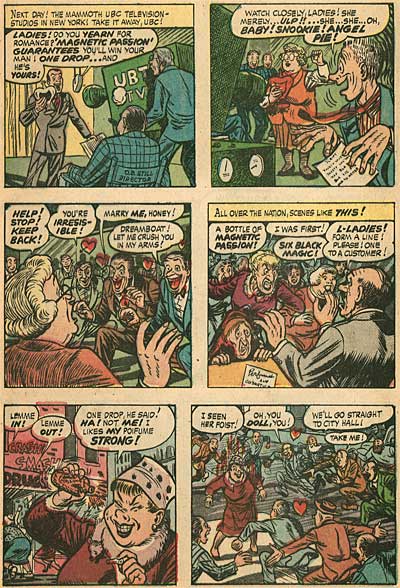
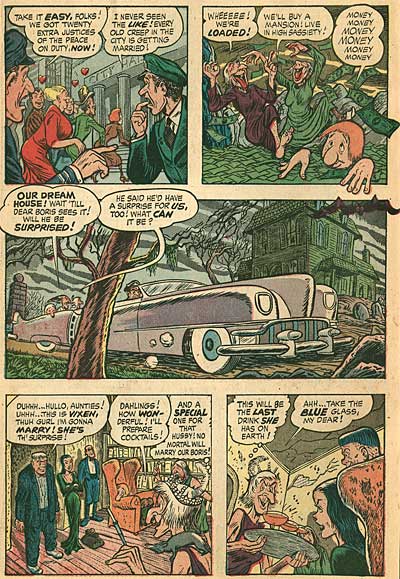
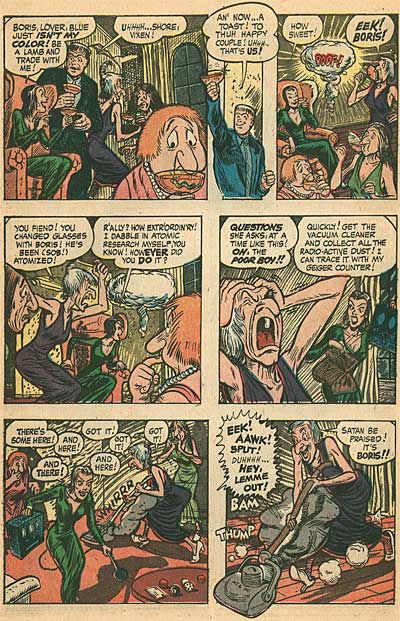
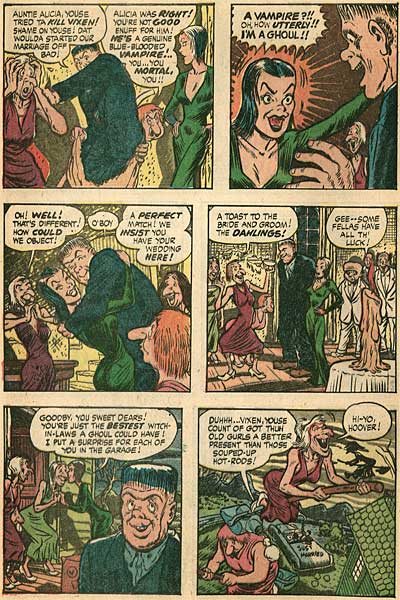
This parody of Milton Caniff’s Steve Canyon was created by cartoonist, William Overgard. Overgard was a friend of Caniff’s. Once, when Caniff was hospitalized, Overgard ghosted a whole week of Steve Canyon dalies so Caniff had time to recouperate. This particular copy of Whack belonged to Caniff. It was lent to us by his estate to digitize.
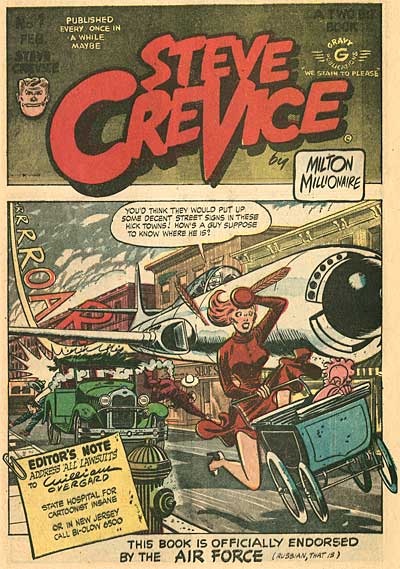
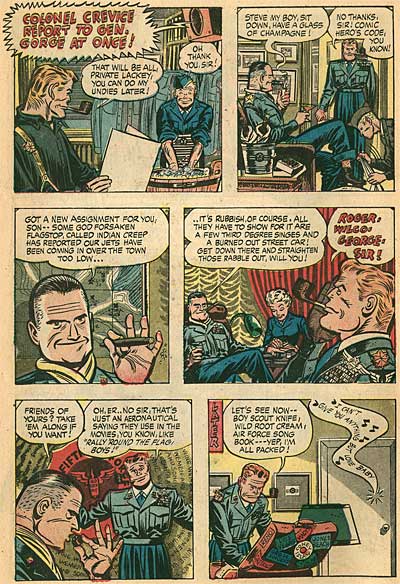
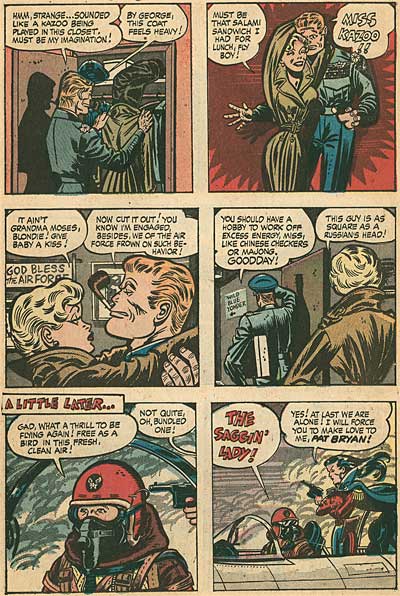
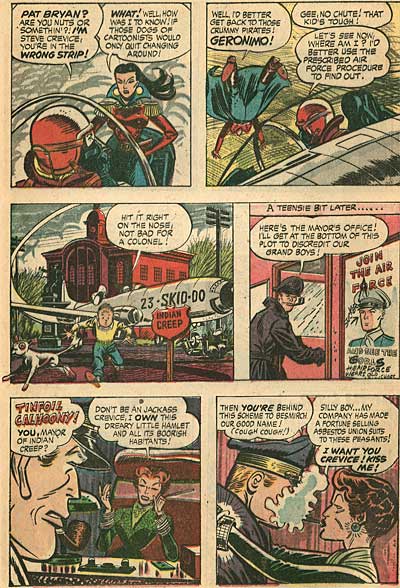
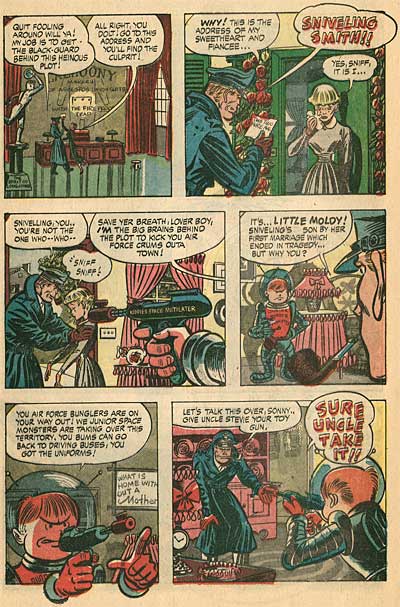
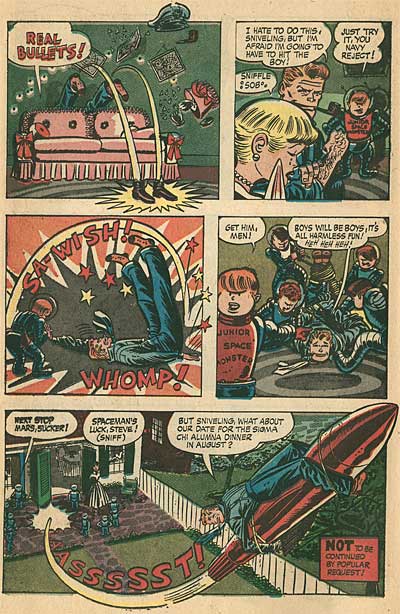
Before we get to more stories, take a look at this advertisement…
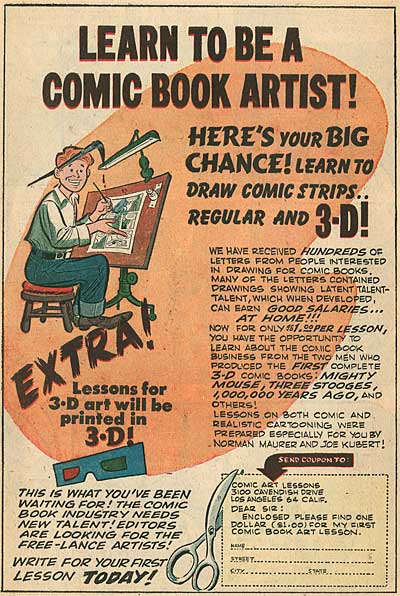
It’s an an early advertisement for the Joe Kubert School. 3D comics and movies were all the rage then. Television was beginning to cut into ticket sales at theaters, and producers were looking for a technical advantage over TV to give them an edge. But the fad quickly fizzled out. Movie audiences and comic book readers were more interested in the quality of the movies and comics than the number of dimensions. Today, DVDs and digital media downloading are cutting into the traditional media markets. Some producers are beating the drum for 3D again. Let’s hope they realize soon that people are more interested in quality entertainment than formats.
The following story by Joe Kubert and Norman Maurer trumpets their publication of the world’s first 3D comic book, Three Dimension Comics in 1953. Strangely enough, the comic this was published in, Whack wasn’t in 3D!
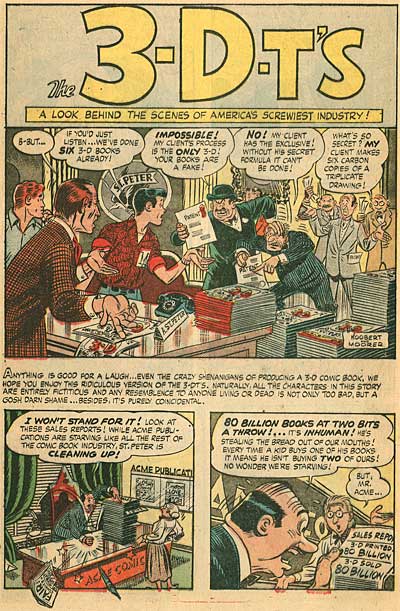
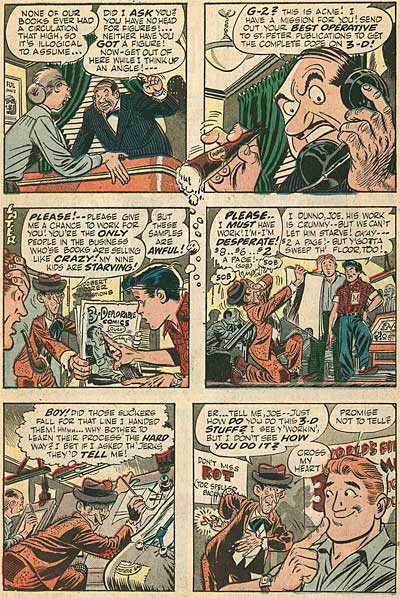
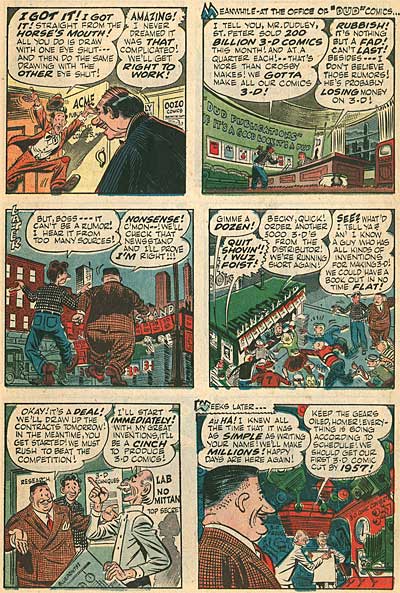
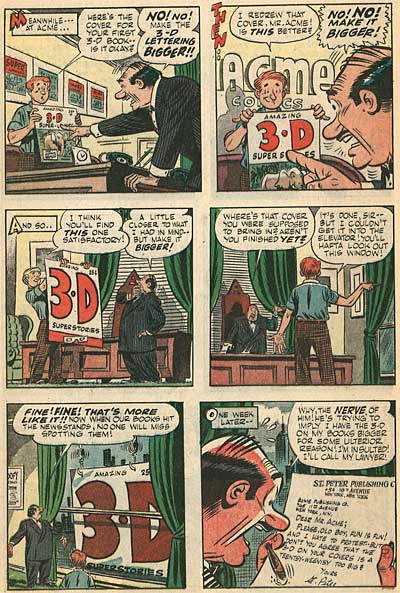
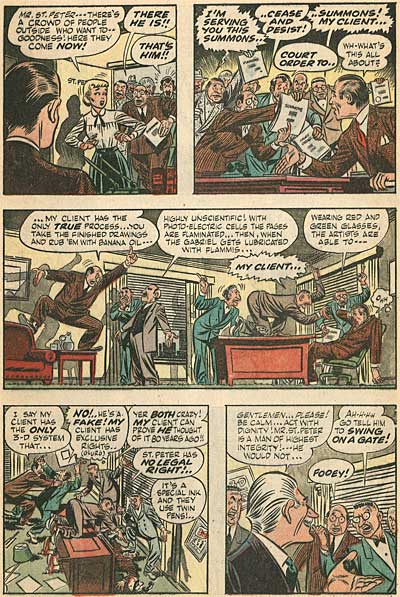
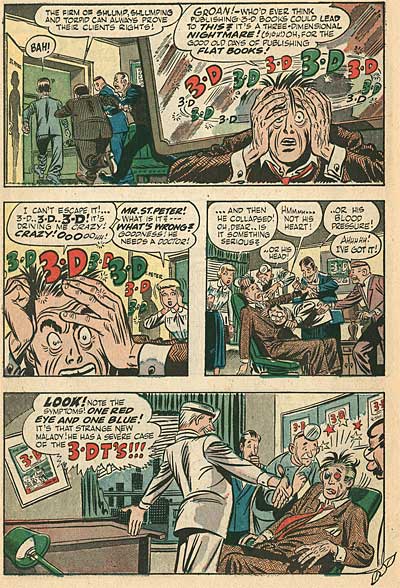
In my discussion of parody so far, I’ve left something unsaid, hoping someone would pick up on it in the comments. J.J. Hunsecker was the one who finally mentioned it…
I find it kind of ironic that you’re using Whack as an example of parody, since it can also be said to be a ripoff of MAD.
It’s important to understand exactly where the line lies between fairly exploiting an existing concept and plagiarism. Whack doesn’t plagiarise Mad magazine… it simply uses the same basic format- a parody comic book. It doesn’t ripoff Mad magazine any more than Roy Rogers ripped off Gene Autry or Star Wars ripped off Star Trek. They are simply working in the same genre.
Here’s an amusing parody of Paul Terry’s Mighty Mouse. The Super Rodent himself even makes an appearance! This is a "second generation parody". Mighty Mouse himself was a parody of Superman!
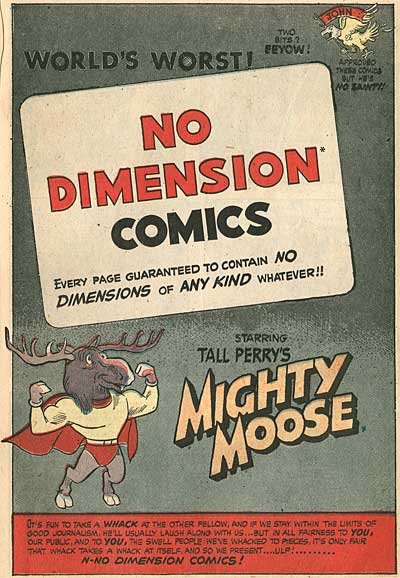
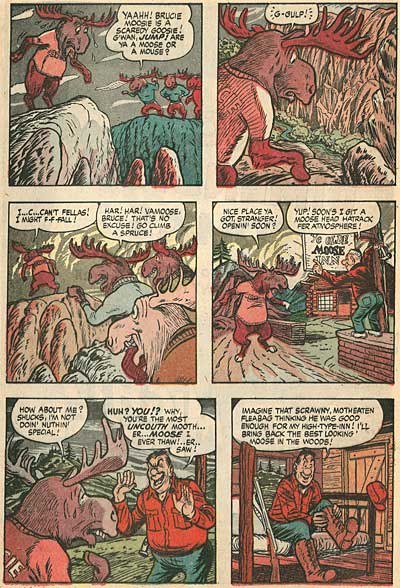
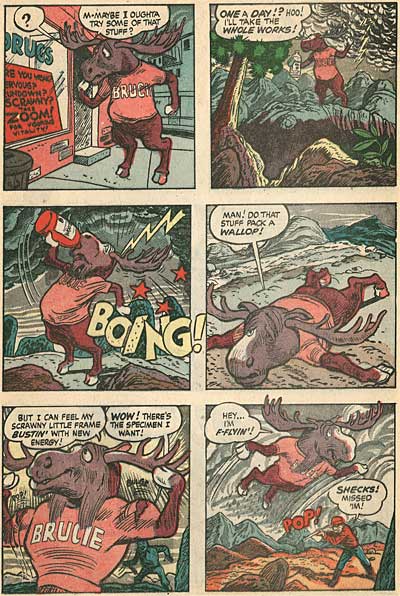
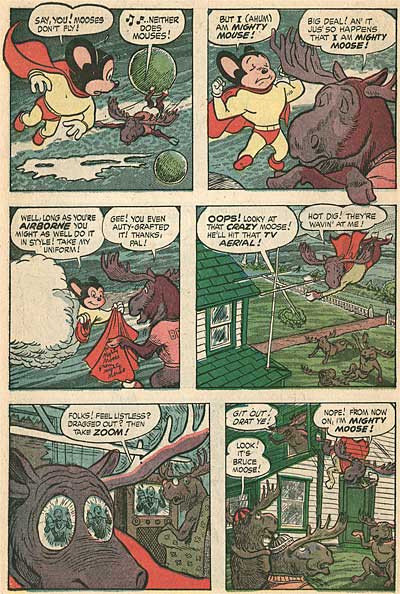
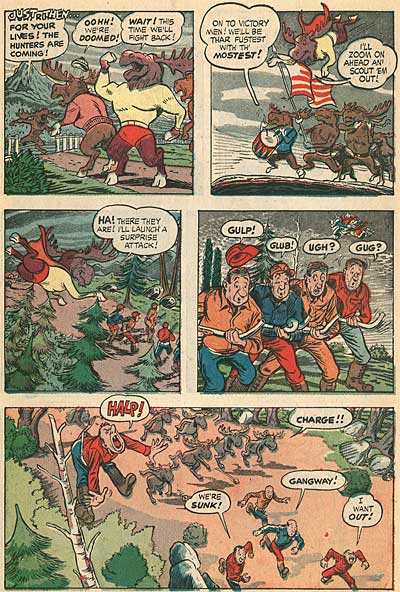
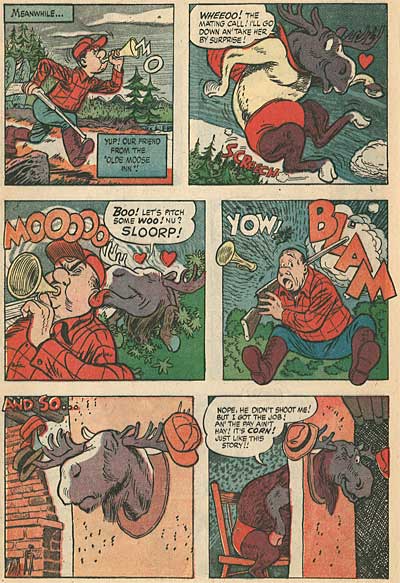
Flash Gordon was also a comic inspired by the success of another similar comic. Alex Raymond created the strip to compete with Dick Calkins’ science fiction comic, Buck Rogers. Here, Flash gets "Whacked"… and Bing Crosby is dragged into the mess too!
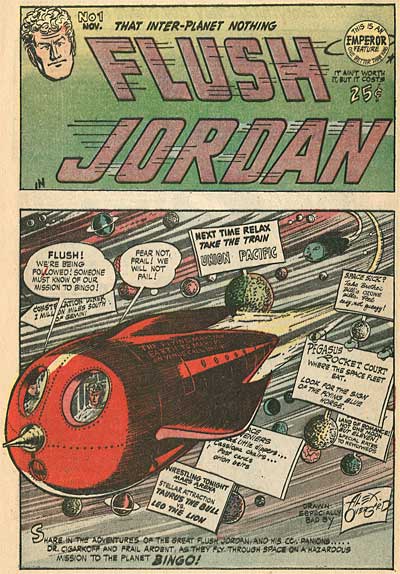
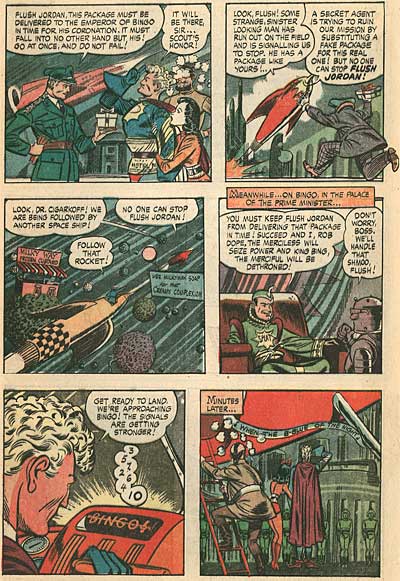
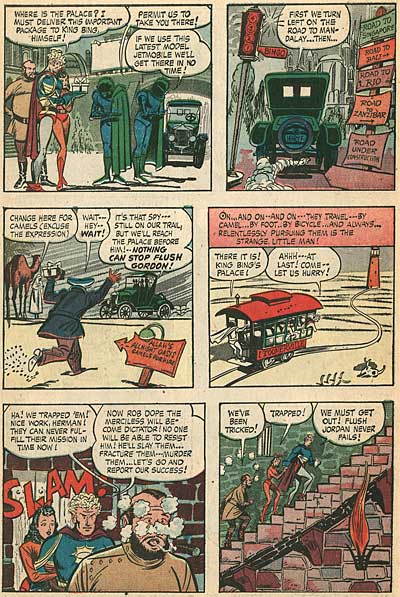
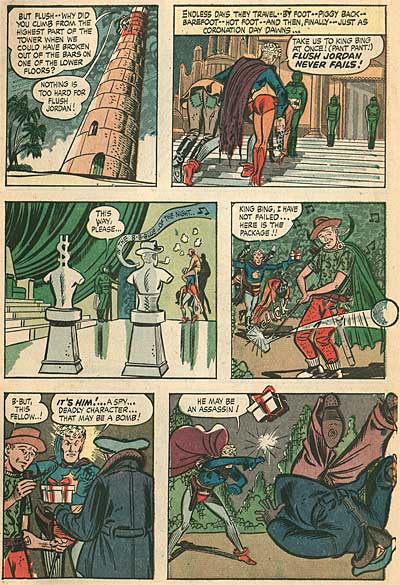
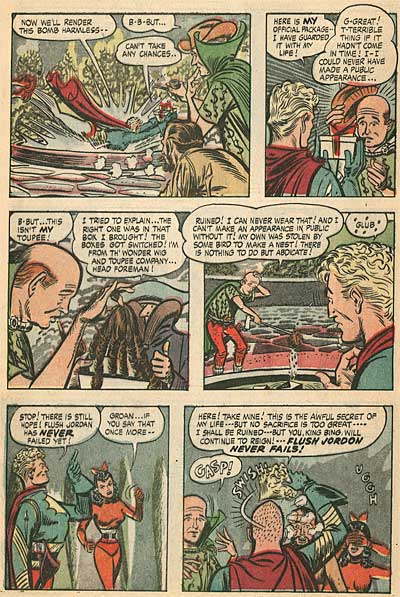
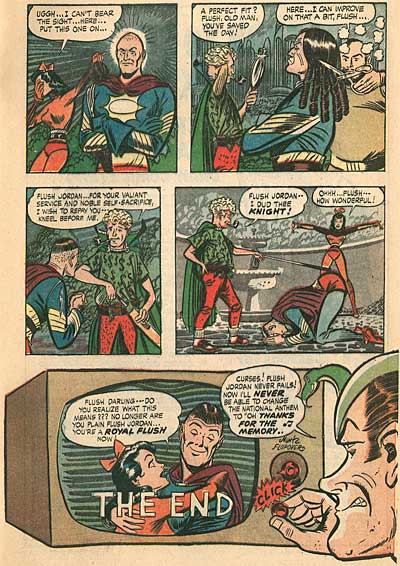
Thanks to the Estate of Milton Caniff for allowing us to digitize this great comic book.
Stephen Worth
Director
Animation Resources
This posting is part of the online Encyclopedia of Cartooning under the subject heading, Comic Books.
![]()
This posting is part of a series of articles comprising an online exhibit entitled Theory.





